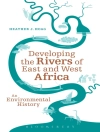In the 1890s Australian and New Zealand women became the first in the world to win the vote. Buoyed by their victories, they promised to lead a global struggle for the expansion of women’s electoral rights. Charting the common trajectory of the colonial suffrage campaigns, Distant Sisters uncovers the personal and material networks that transformed feminist organising. Considering intimate and institutional connections, well-connected elites and ordinary women, this book argues developments in Auckland, Sydney, and Adelaide—long considered the peripheries of the feminist world—cannot be separated from its glamourous metropoles. Focusing on Antipodean women, simultaneously insiders and outsiders in the emerging international women’s movement, and documenting the failures of their expansive vision alongside its successes, this book reveals a more contingent history of international organising and challenges celebratory accounts of fin-de-siècle global connection.
Tabla de materias
Introduction: Leading the empire, leading the world?
1 For God and home and every land: Suffrage internationalism in the World’s Woman’s Christian Temperance Union
2 ‘My heart…yearn[s] for a genuine voting Australian woman!’: Australasian suffragists and the international suffrage movement
3 The business of correspondence: Politics, friendship, and intimacy in suffragists’ letters
4 Shaking hands across the seas: The Australasian women’s advocacy press
5 Suffragists on tour: Exporting and narrating the female franchise
Conclusion
Bibliography
Index
Sobre el autor
Lynn Abrams is Professor of Gender History at the University of Glasgow












